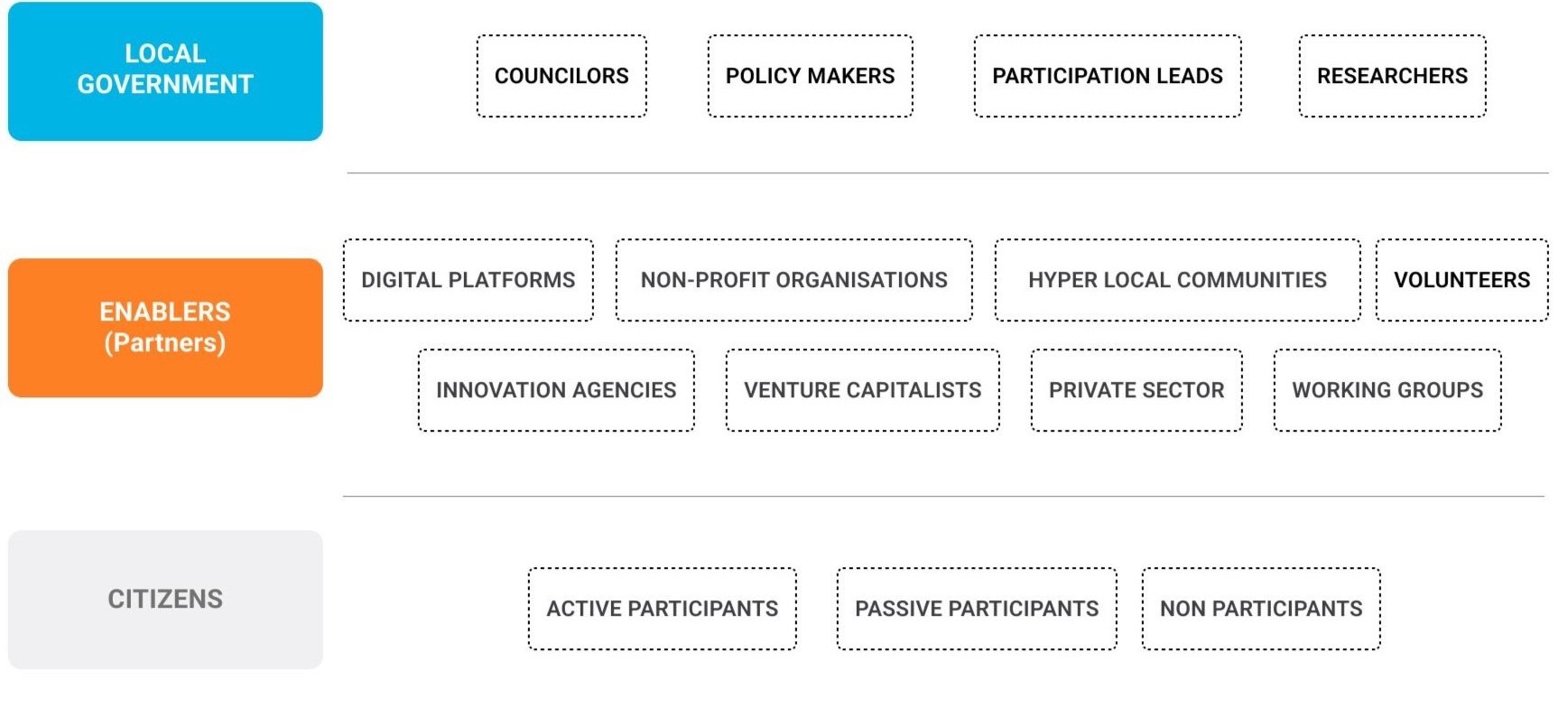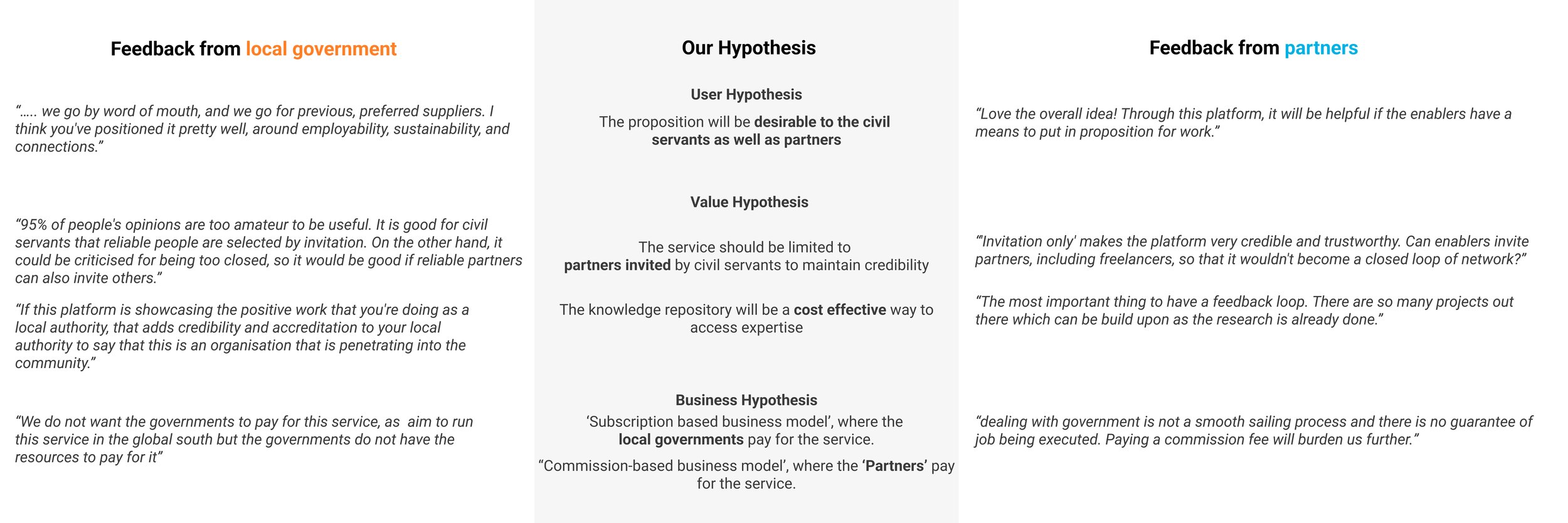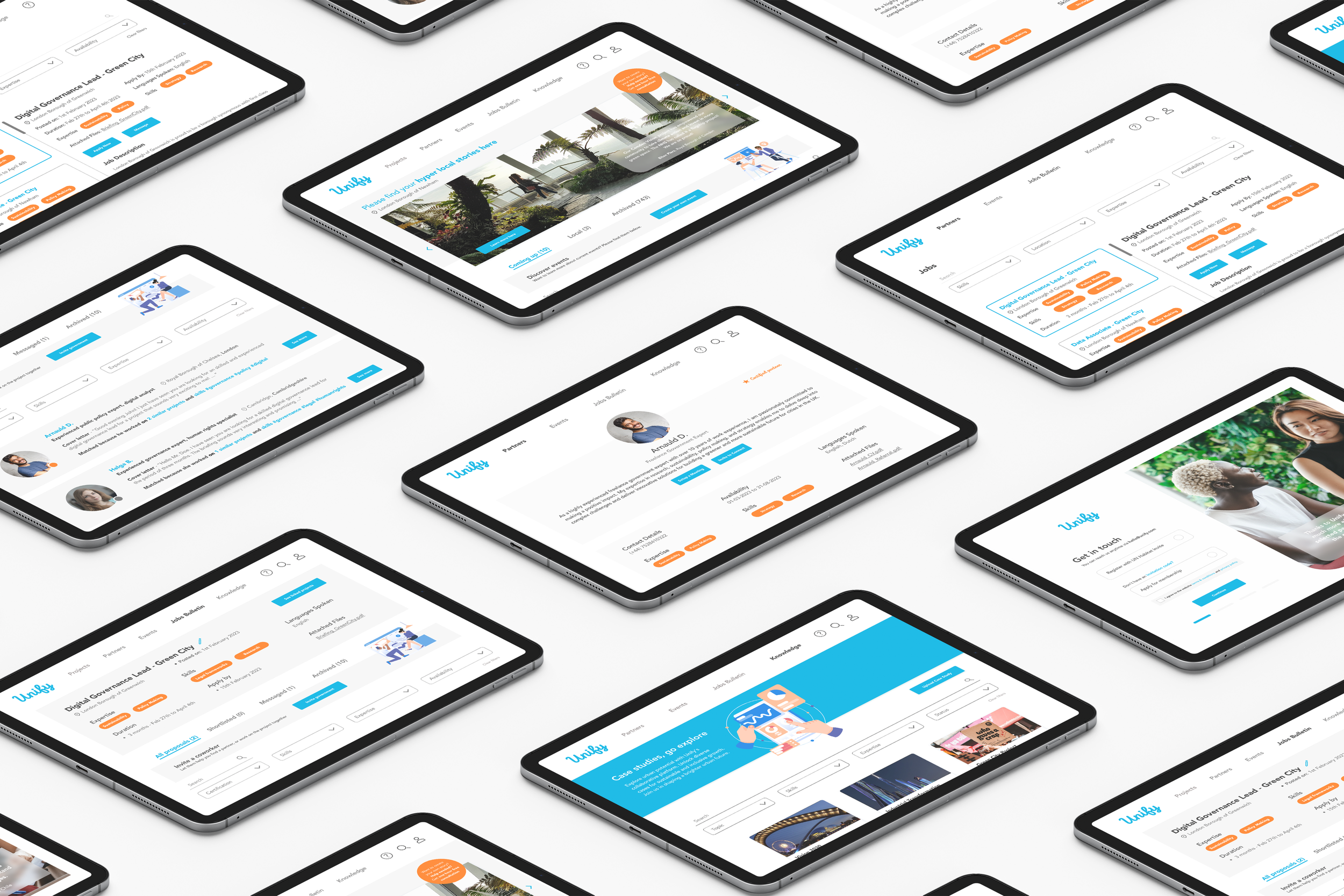Unify
Accelerating public participation in London
In smart cities of today, initiatives such as Google Alphabet's 'Sidewalk Labs' frequently fail due to prioritising technology over the genuine needs of residents.
The crucial question becomes: How do we ensure residents needs are prioritised in the decision-making processes?
Addressing this challenge, we delved into efficiency of Public Participation initiatives—an existing framework designed to ensure citizens play a significant role in decision-making.
Shared Curiosity
My Role: Service Designer
Collaborators: Kazuhiro Kaito, Marta Suslow, Sujeet Kumar, Yashasri Sadagopan
My Responsibilities:
Literature Study
User Research
User Research Documentation
Stakeholder Research
Synthesizing Research Insights
Developing Service Idea
Storytelling: Research Insights, Strategy and Service Proposition
Pitch Deck
Organisations: Royal College of Art and UN Habitat
Impact: Platform to be integrated in UN Habitat’s Digital Help-desk Initiative
Project selected as the only service design project to be exhibited at COP 28, as part of ‘Prototypes of Humanity’ exhibition.
Duration: 8 weeks
PROCESS OVERVIEW
Explore & Discover
Playbook review
Desktop Study
Field study
Ethnographic observation
User Research
Expert Interviews
Understanding Public Participation Process
Identify
Developing Strategy
Expert Interviews
Persona Building
Journey Mapping
Frame & Define
Value Proposition
Product Features
Validating Value Proposition
Developing Service Idea
Ideate & Develop
Clickable Prototypes
Service Blueprint
Product Design
Business Design
Pricing Strategy
Business Model
Revenue Model
Test & Refine
Product Design
User Testing
Pitch to Partners
Script
Pitch Deck
EXPLORE & DISCOVER
Research Methodology
> Playbook Review
> Desktop Research
> Field Study & Ethnographic Observation: Participated in 2 Newham Council Assemblies
>20 Guerrilla Research Interviews with users
>8 In-depth Interviews with Councillors, Policy Experts and Researchers
Insight 1: Public participation initiatives are not successful as civil servants are unable to formulate effective engagement strategies due to the lack of capacity, knowledge, and funding.
Insights from Discovery Stage:
Insight 2: Public participation a is a complex landscape with multiple actors.
Insight 2…(Cont) The enablers who have the highest engagement with the citizens have restricted roles in the process.
IDENTIFY
> 12 In-depth Interviews with Civil Servants and Researchers from Innovation Agencies
Research Methodology
Insights from identify Stage
Insight 1: Public Participation is a Fragmented system
Enablers have the resources and knowledge to support civil servants. But, civil servants fail to leverage their expertise due to lack of timely access and ineffective communication with the enablers.
Public participation initiatives are not successful as civil servants are unable to formulate effective engagement strategies due to the lack of capacity, knowledge, and funding.
Problem Statement
How Might We Statement
“How might we equip local governments with the skills, resources and partnerships needed to empower citizens for public participatory engagement?”
FRAME & DEFINE
An Ideal Journey
We reimagined an ideal public participation journey to structure in an otherwise fragmented and disconnected process.
Value Proposition
Based on that we formulated a value proposition that can bring value to both the stakeholders, civil servants and enablers.
Our Primary Users
We aimed to bridge the gap between civil servants and enablers. To understand their point of view, we constructed personas based on the interviews we conducted.
IDEATE & DEVELOP
We formulated user, value and business hypothesis …
Business Hypothesis
‘Subscription/ Commission based business model’, where the local governments and partners pay for the service.
User Hypothesis
The proposition will be desirable to civil servants as well as partners.
Value Hypothesis
The platform should be limited to partners invited by civil servants to maintain credibility.
The knowledge repository will be a cost effective way to access expertise.
…and designed low fidelity prototypes based on the initial feedback we received.
TEST & REFINE
>8 In-depth Interviews with Councillors, Policy Experts and Researchers
Prototyping Methodology
We incorporated feedback from Civil servants including Councillors, Partners including freelancers, and domain experts to…
….present to you, UNIFY, a platform that connects local governments with partners.
Watch the demo to see how Trish, a public servant recruits Arnold to enhance public participation in Newham Borough.
Product Demo
Flow of Money
Based on the feedback from the UN Habitat, we have positioned Unify as a non-profit entity, which is operated on grant-based funding.
Flow of Data
Through Unify, civil servants post job opportunities for partners.
And partners can collaborate with civil servants by showcasing their expertise.
Flow of Value
UN Habitat will provide partners with verification.
And partners will provide civil servants with knowledge and skills.
At the end, UN Habitat can carry out their mission through public participation in cities.
Business Model
Tutor: Nicolás Rebolledo Bustamante
Interviewees : Imran Nazereli (Nesta), Juli (Urban Heat Studio/ MIT), Syed, Noel Hatch, Councillor Carleen (Newham Borough), Vanja (CitizenLab), Councillor Andy Simmons & Catherine (Southwark Council), Shahaduz, Signe Williams, Alejandra Diaz (Camden Borough), Karin (Collective Intelligence Lab), Emily Middleton (Public Digital), Takumi Sano, Tatsuya Fukuno, Misa Aikawa (Government of Japan)






















